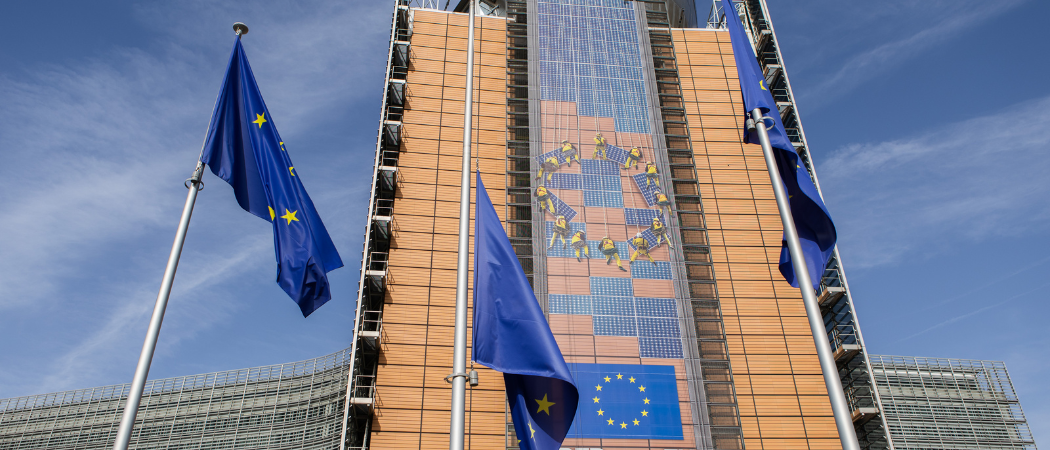Changes to Horizon Europe’s 2023/24 work programme will see new calls to Pillar 2 and a top-up for Missions, while fresh life is breathed into the New European Bauhaus

Berlaymont building, headquarter of the European Commission, Brussels, Belgium. Photo credits: Bogdan Hoyaux / European Union
The European Commission is adding €1.4 billion to the Horizon Europe research programme this year, in latest amendment to 2023 and 2024 spending plans.
The money will be handed out to researchers through the controversial Horizon Europe Missions, and in four new bottom-up calls in Pillar 2 and a new partnership for pandemic preparedness, among others.
This amendment brings the EU’s total Horizon Europe spending in 2024 to €7.3 billion.
But this isn’t more money for Horizon Europe as a whole. The amended work programmes mainly roll out the previously planned investment in EU Missions, which was held back because of negotiations between the Commission and member states on their implementation, following an initial assessment in July 2023 of how the Missions were progressing.
As part of the negotiations, EU member states also secured a separate funding mechanism within Horizon Europe for the New European Bauhaus. Here’s how that transpired in November.
The original 2023/24 work programmes were adopted on 3 December 2022 and first amended in March 2023. They outline Horizon Europe’s calls for proposals, their budget and scope.
Horizon Europe’s total budget for seven years currently amounts to €93.5 billion. It was originally €95.5 billion, but back in January EU member states diverted €2.1 billion to more pressing issues, such as aid to Ukraine. Since then, €100 million has been clawed back from unspent Horizon Europe funds, the so-called decommitments.
This latest amendment is, most likely, the last one to the current set of work programmes before a new set of documents that cover spending from next year is adopted by the new European Commission in early 2025.
What’s new?
EU Missions. A €648 million top-up for the five research Missions in 2024. The Missions funnel research funding into demonstrator projects and actions enhancing dialogue, which in turn are intended to promote innovation and leverage external funding in the five areas of cancer, climate adaptation, oceans and rivers, soil and climate-neutral cities.
The first 2024 calls will open between 18 and 24 April. The deadlines for most calls are in September. The exceptions are the Cities Mission, with some of the calls open from 17 September 2024 to 16 January 2025, and the Soils Mission with calls open from 8 May to 8 October. Here’s the work programme.
New European Bauhaus. The new work programme sets aside €20 million to lay the groundwork for the New European Bauhaus (NEB) facility, a dedicated funding mechanism under Horizon Europe that the Commission hopes to formally launch next year. The NEB facility will have a separate work programme from 2025 to fund the green culture initiative.
The €20 million will be spent on transforming neighbourhoods, regeneration, leveraging new bio-based materials, assessing the impact of the built environment of social relations, and governance models for the co-design of neighbourhoods.
Open calls in Pillar 2. The Commission has set aside money for four bottom-up, open call topics that allow researchers to choose what they investigate. The total budget is €76 million in three Horizon Europe clusters: health; climate, energy and mobility; and food, bioeconomy, natural resources, agriculture and environment.
New partnership for pandemic preparedness. There’s €50 million to set up a European partnership for pandemic preparedness. The call will open on 25 April and close on 26 November. The details are on pages 118-126 of the updated health work programme.
MSCA and Widening calls for 2025. The next set of work programmes won’t be adopted until early 2025. To ensure continuity of certain annual calls, the Commission has included some funding for 2025 in the current work programme.
These include five calls under the researcher mobility and exchange programme Marie Skłodowska-Curie Actions (MSCA) as well as two calls under the Widening work programme for promoting central and eastern European participation in Horizon Europe. These are Teaming for Excellence and ERA Fellowships.
Experimental actions. The Commission is trialling new types of funding before 2025.
There is €15 million for an ‘experimental action’ to put knowledge institutions, such as universities or research organisations, at the centre of the Horizon Missions by making them key outreach players for transdisciplinary research and innovation activities. This call appears to be a response to numerous complaints that the Missions are failing to involve research institutions.
The Commission will use part of the €20 million NEB fund to try to attract newcomers to the programme. This is under the call ‘Transforming neighbourhoods, making them beautiful, sustainable, and inclusive.’
There is €20 million ‘to support talent ecosystems for attractive early research careers.’ The project will trial EU action to improve research careers as part of the long-awaited dedicated EU strategy.
Cultural heritage cloud. There is €48 million for the European Collaborative Cloud for Cultural Heritage, a collaborative digital space for cultural heritage institutions, researchers and the cultural and creative industries. The call, focused on innovative tools, is open between 18 June 2024 and 22 January 2025. There’s funding for ten projects.





 A unique international forum for public research organisations and companies to connect their external engagement with strategic interests around their R&D system.
A unique international forum for public research organisations and companies to connect their external engagement with strategic interests around their R&D system.